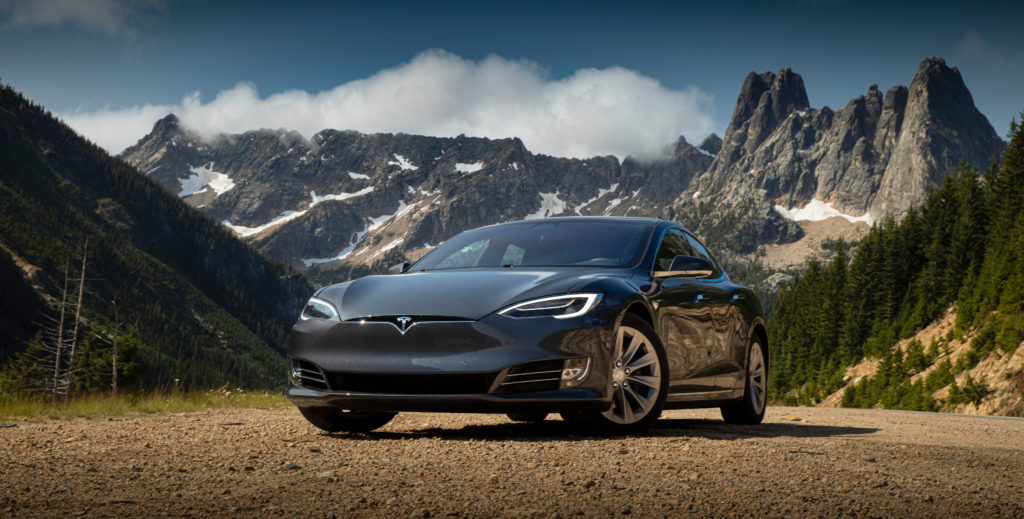Shareholders Pleased as Musk Decides Against Taking Tesla Private

The shareholders are pleased that Elon Musk decided against taking tesla private in what was sure to be a controversial move. Not wholly unlike several bold and surprising moves the worlds most famous entrepreneur has done in recent years. Tesla’s CEO Elon Musk recently created quite a stir after suggesting he was considering taking his car company private. Things got even more serious last week when Musk hired Morgan Stanley to advise him regarding such a bid.
However, news broke early Saturday morning that Musk had abandoned the idea. Although he said there was more than enough funding to do it, ultimately he decided against it because current shareholders asked him not to.
Investors surely had their reasons for wanting the company to stay public, including a very large tax bill if Tesla had gone private. Musk had said his idea would’ve been to allow current shareholders to remain invested if they wanted, via a special fund. He also said he would’ve offered $420 a share to those who wanted to sell.
That being said, if current shareholders would’ve stayed invested they would have had to sell their current shares and then purchase shares in the special fund. So what would the tax implications had been if that had happened? Any investors that made a profit from selling those shares would’ve been taxed no matter what they did with the money.
For investors that got in at the beginning a hefty tax bill would have awaited them. Consider that when the company first went public it opened at a price of $19 a share. The stock has since climbed to a current rate in the neighborhood of $340 a share. For someone that originally invested $10,000, that would now be worth close to $179,000 at the current share price. With the top capital gains tax rate at 20 percent, that’s a $33,800 tax bill.
But shareholders are breathing a sigh of relief knowing they won’t have to pay that price, at least for now.
About Tesla (from Wikipedia) Founded in July 2003 by Martin Eberhard and Marc Tarpenning, the company’s name is a tribute to inventor and electrical engineer Nikola Tesla. In February 2004, via a $6.5 million investment, X.com co-founder Elon became the largest shareholder of the company and its chairman. He has served as CEO since 2008.
According to Musk, the purpose of Tesla is to help expedite the move to sustainable transport and energy, obtained through electric vehicles and solar power. Began production of its first car model, the Roadster sports car, in 2009. This was followed by the Model S sedan in 2012, the X SUV in 2015, the Model 3 sedan in 2017, and the Y crossover in 2020.
The Model 3 is the all-time best-selling plug-in electric car worldwide, and, in June 2021, became the first electric car to sell 1 million units globally. Tesla’s global sales were 936,222 cars in 2021, a 87% increase over the previous year, and cumulative sales totaled 2.3 million cars at the end of 2021. In October 2021, Tesla’s market capitalization reached $1 trillion, the sixth company to do so in U.S. history.
We hope you found this article about “Shareholders Pleased as Musk Decides Against Taking Tesla Private” helpful. If you have questions or need expert tax or family office advice that’s refreshingly objective (we never sell investments), please contact us or visit our Family office page or our website at www.GROCO.com. Unfortunately, we no longer give advice to other tax professionals gratis.

To receive our free newsletter, contact us here.
Subscribe to our YouTube Channel for more updates.
Considerately yours,
GROCO, GROCO Tax, GROCO Technology, GROCO Advisory Services, GROCO Consulting Services, GROCO Relationship Services, GROCO Consulting/Advisory Services, GROCO Family Office Wealth, and GROCO Family Office Services.

Alan L. Olsen, CPA, Wikipedia Bio

Proud sponsor of the AD Show.

Sales Tax Deduction Option, State and Local
[vc_row][vc_column][vc_column_text] Sales Tax Deduction Option, State and Local The Tax Relief and Health Care Act of 2006 extended the election to deduct state and local general sales taxes for 2006. The act was enacted after Schedule A (Form 1040), Itemized Deductions, and its instructions were printed. Because we were not able to include the instructions…
California Unitary Group of Corporations; Intercompany Distributions; Deferred Gain Tracking
California Unitary Group of Corporations; Intercompany Distributions; Deferred Gain Tracking New Form 3726 – Deadline Extended to 10/15/09 Unitary Groups must do more tracking in some cases. The Franchise Tax Board wants to make sure deferred intercompany gains don’t get lost over the years (and therefore, never taxed), so they are forcing taxpayers to provide…
Top Self Employed Tax Questions
Top Self Employed Tax Questions What is Business Turnover? Sales turnover is the total amount of income a business earns before deducting business expenses. Turnover includes receipts of any kind for goods sold or work done such as commission, tips, payments in kind, fees and insurance proceeds. Include sales turnover in your financial accounts at…
2010 Tax Relief Act creates a 100% writeoff for heavy SUVs used entirely for business: HISTORY REPEATS ITSELF
[vc_row][vc_column][vc_column_text]OLD RULE: A calendar year taxpayer bought a $50,000 heavy SUV in June of 2010 and used it 100% for business in 2010. It may write off $40,000 of the cost of the vehicle on its 2010 return, as follows: … $25,000 expensing deduction (Sec. 179(b)(6) Limit, see below under “History”), plus … $12,500 of…
